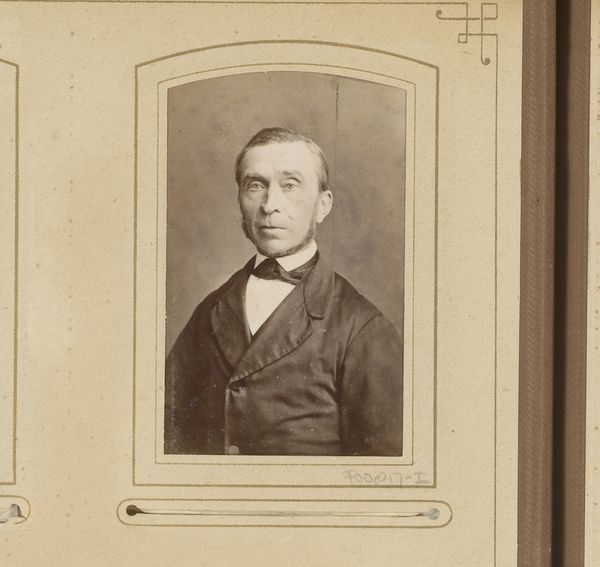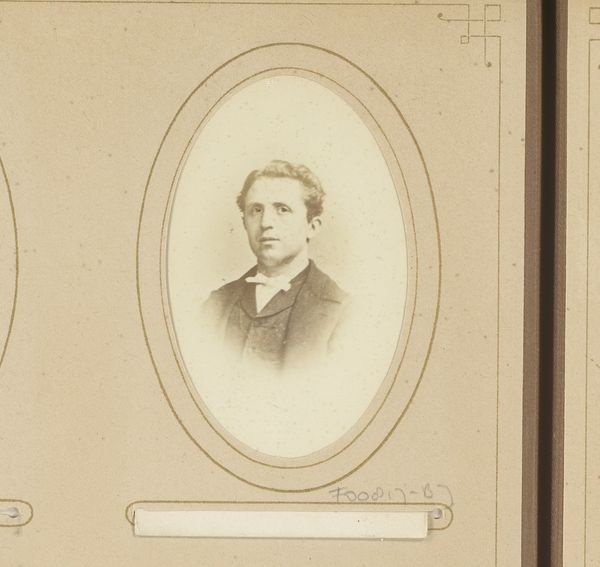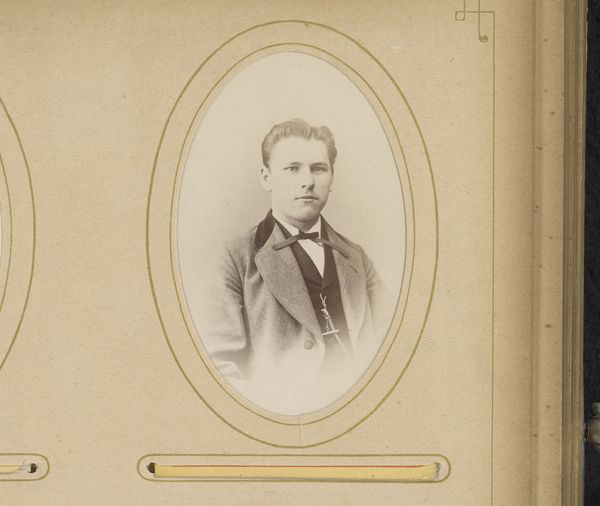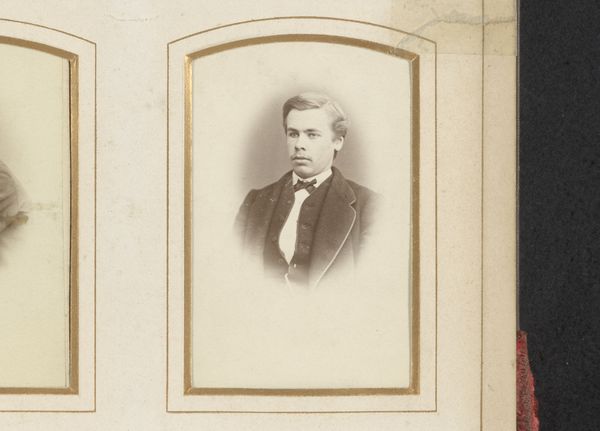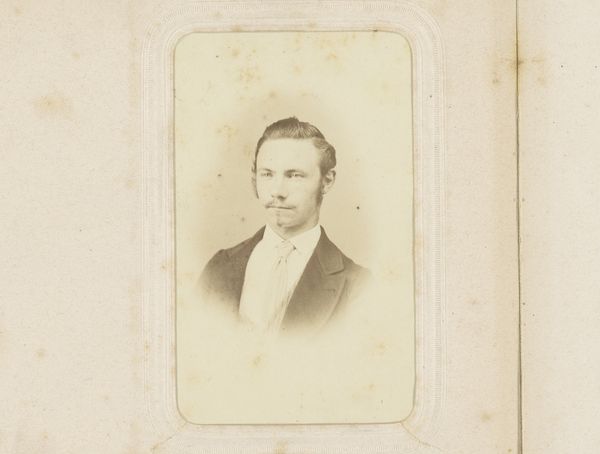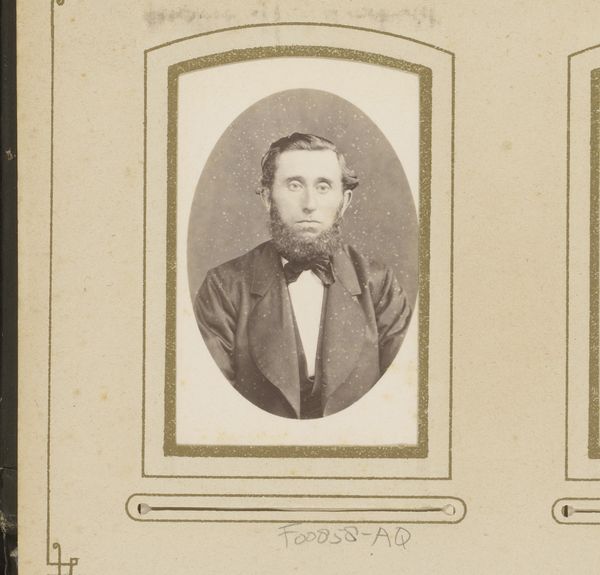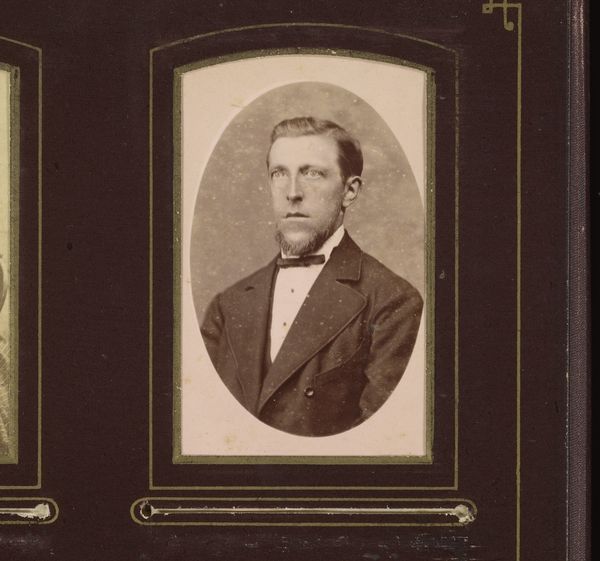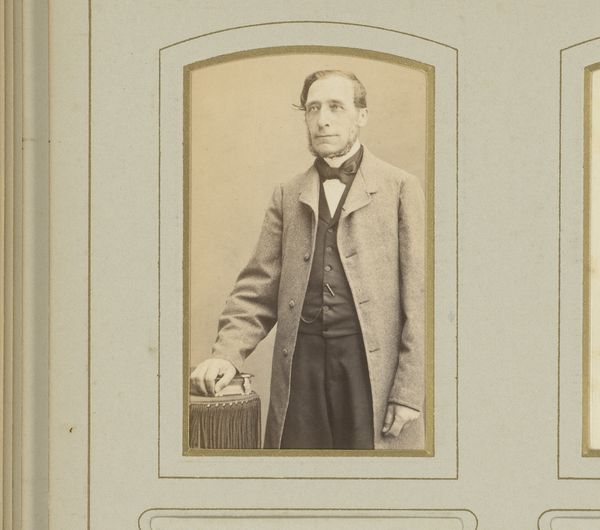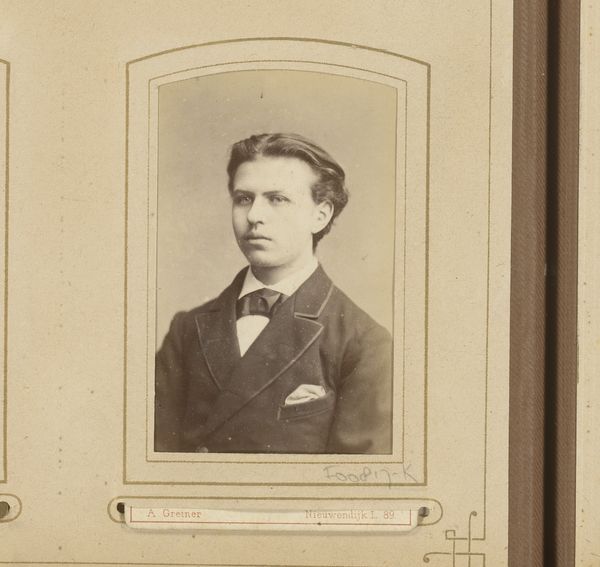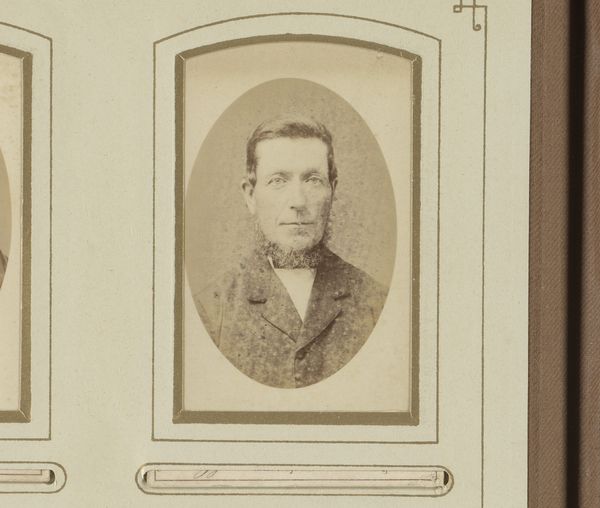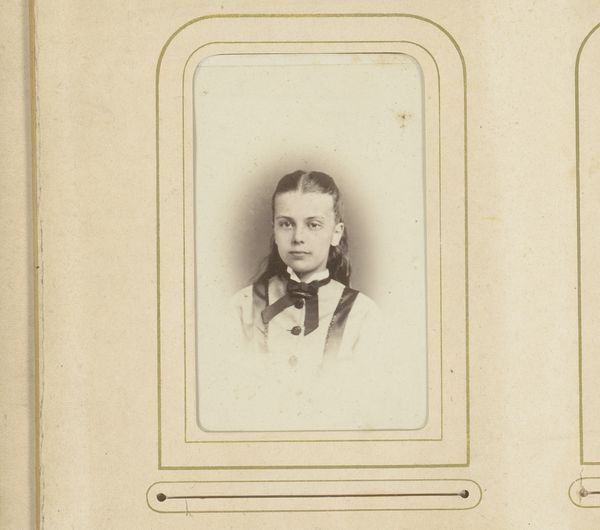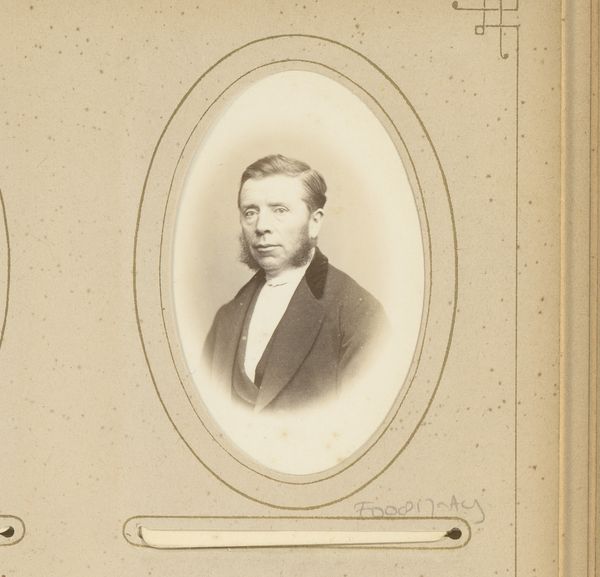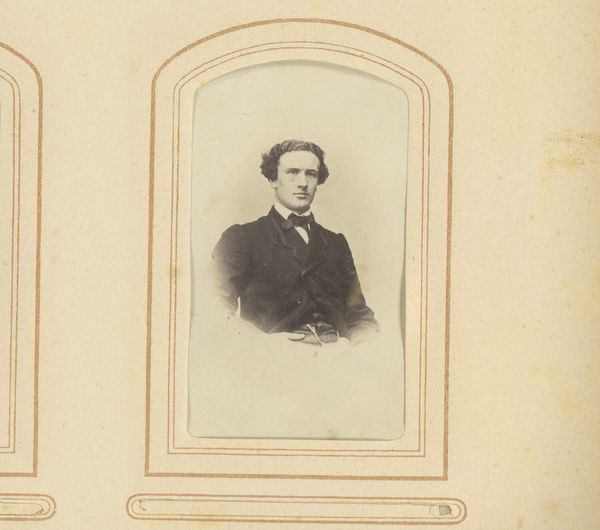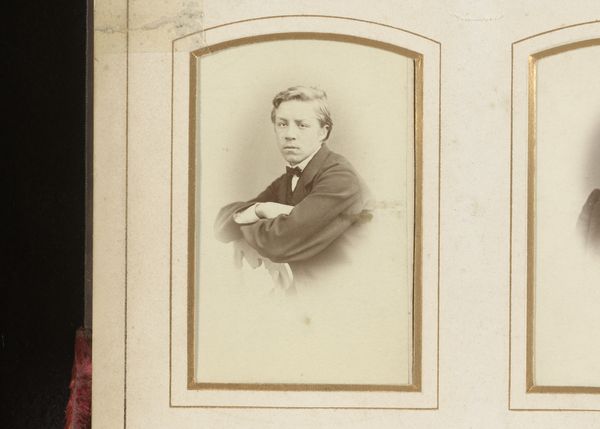
daguerreotype, photography
#
portrait
#
daguerreotype
#
charcoal drawing
#
photography
#
historical photography
#
19th century
Dimensions: height 82 mm, width 51 mm
Copyright: Rijks Museum: Open Domain
Curator: Ah, here we have a rather poignant portrait of a young man. It's titled simply, "Portret van een jonge man," dating from the period of 1860 to 1900. The artist is listed as G. Römler, and the work utilizes daguerreotype photography. Editor: My first impression is one of gentle solemnity. The light seems to catch him softly, despite the photographic grid subtly behind his figure. He has an earnest gaze and almost a wistful air about him. Curator: Indeed. Observe how Römler has positioned the sitter centrally, almost geometrically within the frame. Note how his dress vest bisects the photo, and contrasts against a dark jacket. These structured elements give the piece a balanced, perhaps self-possessed quality. Editor: The subject's formal attire speaks to a certain class, no doubt. But I’m struck more by his soft cravat and the vulnerable youthfulness. Early photography often aimed to memorialize the fleeting moment; the daguerreotype process itself carries that weight, doesn't it? Almost like trapping a soul for an eternity. Curator: An interesting proposition. Consider how portraiture was shifting at the time, with the advent of affordable photographic techniques challenging the conventions of painted portraiture, as well as concepts about human subjectivity and representation. We are not simply seeing a representation of status, but perhaps, a more genuine…snapshot. Editor: A snapshot striving for eternity! The muted tones contribute, perhaps unintentionally, to a sense of longing. The symbolism is subtle; it invites introspection about time and the nature of remembrance itself. This image could have been tucked inside a family album, preserving memories long past. Curator: Fascinating to contemplate its original context! Römler’s technical and artistic command demonstrates photography's increasing ability to record a physical likeness but, ultimately, this work provokes much deeper engagement. Editor: Agreed. Looking closely at the composition of this image triggers a reflection on the layers of stories hidden in the simple arrangement of shape and light in it.
Comments
No comments
Be the first to comment and join the conversation on the ultimate creative platform.
